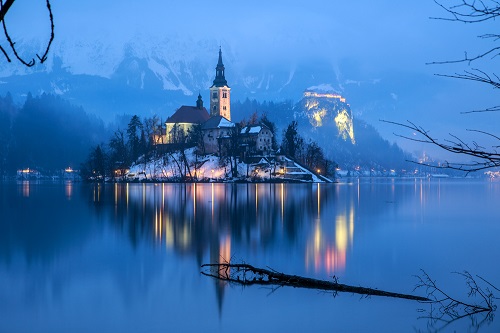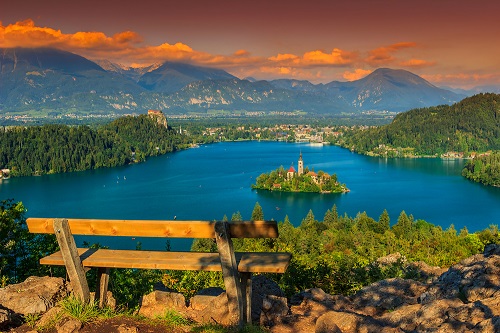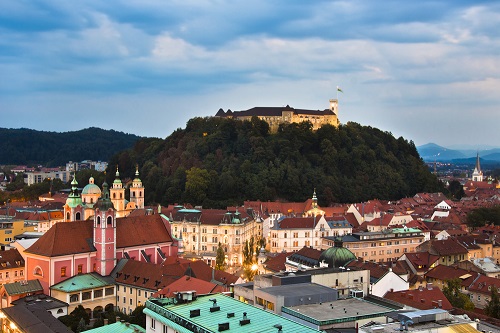If you are intending to give birth in Slovenia, you will need to decide whether to use the public or the private sector. Note that most expats choose the private sector, even though pregnancy and birth in Slovenia are fully covered by compulsory state medical insurance. We will look at some of your options below.
How to decide on a birth plan
A birth plan is a list of what you would like to have happen during labour and afterwards. Write one so that your doctor knows what your wishes and expectations are.
- Where do you want to give birth?
- Who do you want to have with you (e.g. your partner)?
- What kind of birth do you want (e.g. vaginal birth or a Cesarean)?
- Do you need any birthing aids?
- Do you want pain relief, and if so, what kind?
- What kind of birthing environment would you prefer?
You will find 14 maternity hospitals in Slovenia, which offer different types of deliveries. Natural (vaginal) delivery is still the most prevalent in Slovenian hospitals.
Home births are increasingly popular in the country, however. Home births can be conducted by professional birth attendants (licensed midwives) or by birth assistants (doulas, etc).

Mothers’ rights group Mamazofa has drawn up a list of requirements, which they say need to be addressed in Slovenia. This list may give you an insight into some of the prevalent issues:
- Established birth practices have not been satisfactorily updated in line with the most recent scientific findings. Some frequently used practices are not of benefit during a low-risk labour and birth, and some even harm women and/or babies. There are also practices with scientifically proven benefits that have not become established in Slovenia.
- Women and their partners are not always properly informed about the advantages and disadvantages of individual interventions and/or treatments, care and procedures during pregnancy, labour, birth and the postpartum period, or about the possible choices and their advantages and disadvantages
- The attitude of medical experts towards a woman during pregnancy, childbirth and afterwards, as well as towards her child and family, does not always meet quality standards
- Many women and parents are not sufficiently informed about patient rights; the realisation of patient rights is not always ensured or consistent
Contact local groups if you are concerned about anything, such as potential language barriers, or if you feel you may need assistance or advocacy in making your wishes known.
However, the good news is that The European Perinatal Health Report for 2015 places Slovenia among the safest countries in the world in which to give birth. It has one of the lowest Cesarean section rates in Europe, although around 20% of all Slovenian births are done via this method.
Maternity care in Slovenia
Your first port of call, if you think you might be pregnant, will be your GP. S/he will arrange a schedule of necessary tests, such as ultrasounds, blood tests and other checks. Your GP is responsible for organising the birth. After preliminary diagnostics, a doctor will be assigned to you. A midwife will attend the delivery, or else the chief doctor and paediatrician will be present.
You will be allowed to have your partner, and perhaps other relatives, with you. You will also be entitled to three meals a day, a private bathroom, TV and internet in some private hospitals. It is advisable to visit the hospital beforehand to discuss services and your specific needs.
After the birth, your child will undergo tests for any genetic diseases and developmental irregularities. After your discharge, you will receive visits from a community nurse. Generally, they will contact you and set up a home visit. However, if you give birth outside the region of your permanent residence, you will need to contact the community nursing service yourself via your community healthcare centre.
Babies and preschool children can have a preventive examination with their selected paediatrician at the ages of one, three, six, nine, twelve and eighteen months, as well as at the ages of three and five years.
There are parents’ schools (Šola za starše) and courses for new mothers, which maternity hospitals organise.

Maternity leave (materinski dopust) lasts for 105 days. You will begin maternity leave 28 days before you give birth. During this period, you will receive a maternity allowance.
Paternity leave (očetovski dopust) lasts for 90 days. You should use the first 15 days by the time your child reaches the end of their sixth month. You can use the remainder, in the form of full leave, until the child reaches the age of three. The paternity allowance amount, within 15 days of the child’s birth, is 100% of the average salary of the father. The father does not receive benefits for the remaining 75 days, but his social security contributions, at the amount of the minimum wage, will be paid for the period of paternity leave.
One of the parents has the right to go on leave and take care of the child or to extend the pregnancy decree for 260 days immediately after the term expires. The amount of parental compensation will depend on your average salary over the previous 12 months. Your allowance cannot be higher than 2.5 times the average gross wage.
Child allowance for 360 days provides an additional benefit for the maintenance, upbringing and education of the child. The payment amount will depend on income. To receive benefits, you must submit an application to the local Social Welfare Office.
Will my baby be a Slovenian citizen?
Children born to foreign parents in Slovenia do not acquire Slovenian citizenship on the basis of their birthplace.

